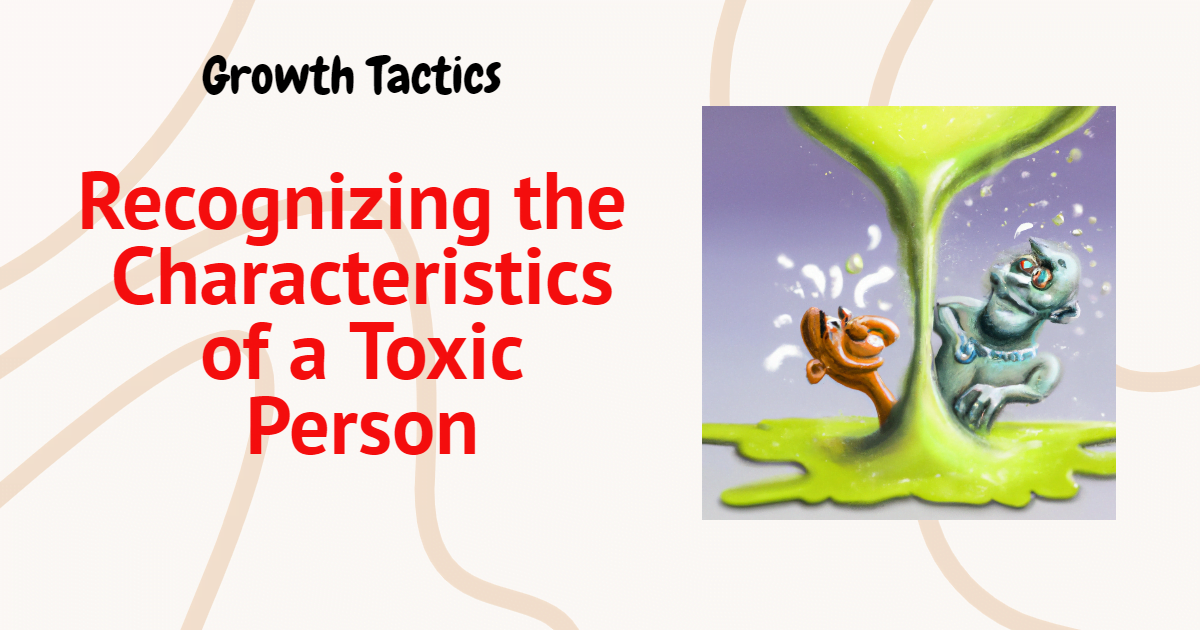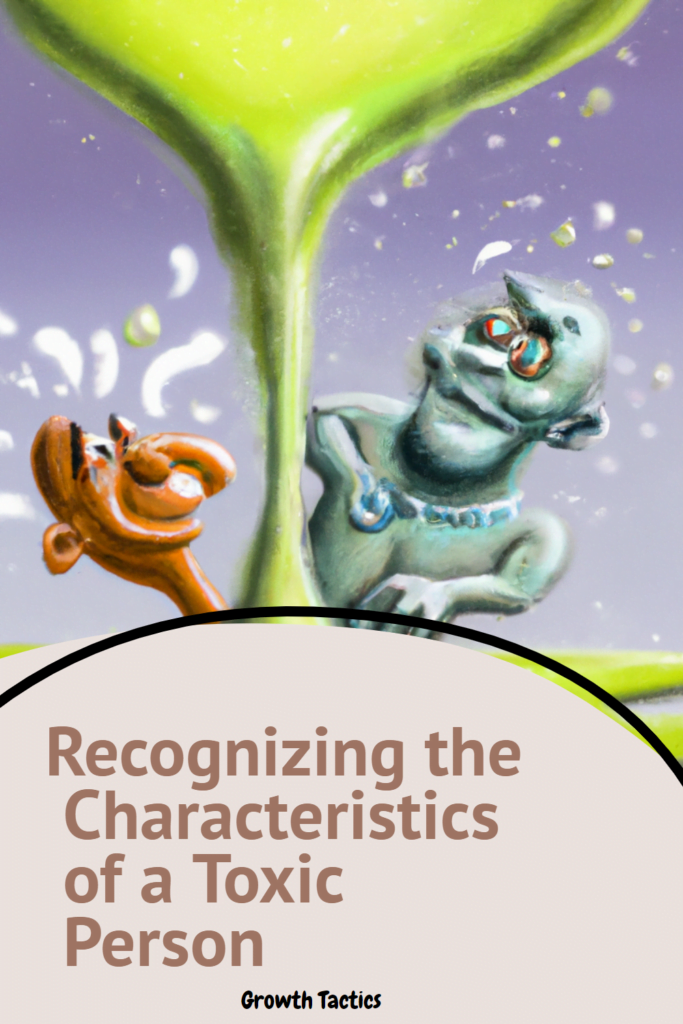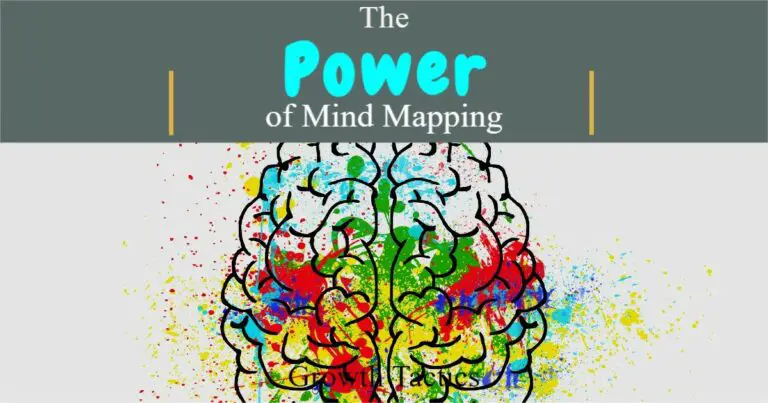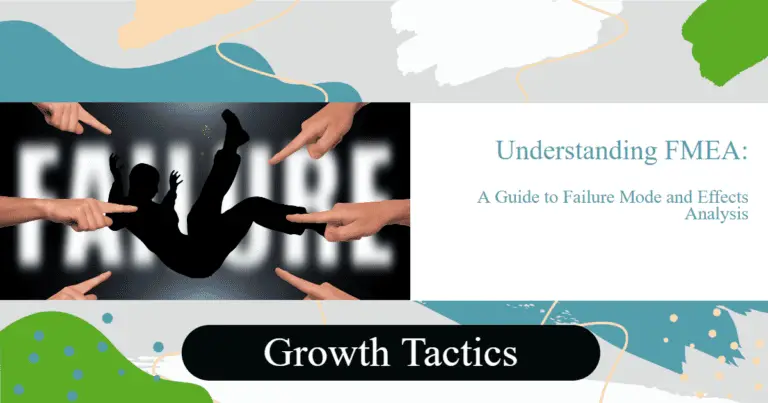I’ve always tried to see the best in everyone, yet I’ve had to face the harsh reality of dealing with my fair share of toxic individuals. It’s a tough pill to swallow, recognizing that not everyone has your best interests at heart. In this article, we’ll explore the characteristics of toxic people and explore practical ways to cope with them. Our journey towards understanding will help us cultivate healthier relationships and protect our own well-being.
Jump To Section
Characteristics of a Toxic Person
Lack of Empathy
One of the most telling signs of a toxic individual is a lack of empathy. This trait means they struggle to understand or care about the feelings of others, often prioritizing their own desires without considering the impact on those around them.
Manipulative Behavior
Toxic people often use manipulative tactics to bend situations to their advantage. They might use emotional blackmail, deceit, or covert strategies to control others, ensuring outcomes that solely benefit themselves.
Constant Negativity
Surrounding themselves with an aura of negativity, toxic individuals often see the worst in situations and people. Their persistent pessimism can drain the energy of those around them, creating a generally disheartening atmosphere.
Demand for Control
A common characteristic among toxic individuals is a strong need to control others. They may undermine your decisions or impose their own, stifling your ability to act independently and fostering dependency.
Unwilling to Take Responsibility for Their Actions
Toxic people often shirk accountability. When things go wrong, they are quick to blame others and refuse to acknowledge their own role in the situation. This evasion prevents learning and growth, putting continual strain on relationships.
Gaslighting
A particularly insidious behavior is gaslighting, where the toxic person makes others question their own reality, memory, or perceptions. It’s a form of psychological manipulation that can deeply affect one’s mental health and self-esteem.
Undermining Your Self-Worth
Regularly making you feel you are not good enough is a tactic toxic people might use to keep you in a lowered state of confidence. This undermining can occur through criticisms, dismissals, or comparisons, all intended to erode your self-esteem.
These characteristics define the toxic behaviors that can impact our lives severely. Recognizing them is the first step in protecting yourself and maintaining your mental health.
Impact of Toxic Behaviors
The impact of toxic behaviors on individuals and relationships can be profound and long-lasting. When continually exposed to such negativity and manipulation, people often find their sense of self-worth and self-esteem eroded. This erosion can lead to questioning one’s own judgment, abilities, and value, making it increasingly difficult to assert oneself or make healthy decisions. The constant demand for compliance and control by toxic individuals can lead to a loss of autonomy, leaving victims feeling powerless in their own lives.
Moreover, the drain of being around a toxic individual is not just emotional but can also manifest physically. Stress, anxiety, and even depression can stem from dealing with such personalities, affecting one’s overall well-being. The manipulation and gaslighting can lead to a profound sense of isolation, as victims may feel misunderstood or unsupported by those unaware of the toxic person’s true nature.
Relationships, both personal and professional, suffer greatly under the strain of toxic behaviors. Trust erodes, communication breaks down, and the environment can become hostile or suffocating. In personal settings, this dynamic creates a breeding ground for further negativity, impacting not just the primary relationship but also affecting family, friends, and social circles.
Recognizing the impact of toxic behaviors is crucial for anyone entangled in such a dynamic. Understanding that the consequences are not just fleeting annoyances but potentially severe emotional and psychological challenges is the first step toward seeking healthier interactions and environments.
Understanding Gaslighting
Gaslighting is a form of psychological manipulation in which a person seeks to sow seeds of doubt in a targeted individual or in members of a targeted group, making them question their own memory, perception, or sanity. Using persistent denial, misdirection, contradiction, and lying, it attempts to destabilize the victim and delegitimize the victim’s belief.
How it Manifests
Gaslighting can manifest in various ways, often starting subtly and increasing in severity over time. It might begin with seemingly innocent comments or questions that make you question your decisions or perceptions. Over time, the toxic person may escalate their tactics, outright denying events occurred or conversations took place, even if you have evidence to the contrary. They might also use their influence to alter the perceptions of others around you, further isolating you.
The Goal of Gaslighting
The primary goal of gaslighting is to gain power and control. By making you question your reality, the toxic individual gains the upper hand in the relationship. This can lead to you becoming more dependent on them for validation of your perceptions and reality, giving them more control over your actions and decisions.
Effects of Gaslighting
Gaslighting can have devastating effects on an individual’s mental health. Victims often experience confusion, anxiety, and a sense of helplessness. Over time, the constant self-doubting erodes their confidence and self-esteem, making it difficult to trust their judgment or assert themselves in various aspects of life. In severe cases, it can lead to depression and other mental health issues.
Understanding gaslighting is crucial in recognizing when you or someone you know is in a manipulative relationship. Recognizing the signs early can help prevent the long-term psychological effects associated with this form of abuse, enabling victims to seek help and reclaim control over their lives.
Dealing with Toxic People
Navigating relationships with toxic individuals can be challenging, but with the right strategies, you can protect your well-being and possibly mitigate the effects of their behavior. Here’s a guide to some effective methods you can use:
Establish Boundaries
The first step in dealing with toxic people is to set firm boundaries. Clearly define what is and isn’t acceptable in your interactions. Make these boundaries known, and be consistent in enforcing them. If a toxic individual knows you won’t tolerate certain behaviors, they may be less likely to attempt those actions around you.
Limit Interactions
Where possible, reduce the amount of time you spend with toxic individuals. Limiting your exposure can decrease the emotional and psychological strain associated with their negativity. When interactions are unavoidable, try to keep them short and focused on necessary topics.
Build a Support Network
Having a strong support network is vital. Surround yourself with positive, supportive people who understand your situation and can provide emotional support and advice. This network can reaffirm your perceptions and experiences, counteracting any gaslighting tactics.
Seek Professional Help
In situations where dealing with a toxic person is particularly challenging or damaging, seeking professional help from a counselor or therapist can be beneficial. These professionals can offer strategies tailored to your situation, helping you to cope better and work through the emotions and stress caused by toxic relationships.
Practice Self-Care
Coping with toxic individuals can be draining. Make sure to engage in self-care activities that rejuvenate your mind and body. Whether it’s exercise, reading, meditation, or pursuing hobbies that give you joy, taking care of yourself helps to fortify your mental and emotional health against the strain of toxic behaviors.
Remain Calm and Focused
When you must interact with toxic people, staying calm and collected can help maintain your sense of control. Avoid getting drawn into confrontations or drama, as these can escalate the negativity and take a toll on your emotional well-being.
Dealing with toxic people often requires a multi-faceted approach, combining internal resilience with external support and strategies. By implementing these tactics, you can preserve your well-being and maintain healthier relationships, even in difficult circumstances.
Dealing with the Aftermath
Recovering from prolonged exposure to toxic individuals is often a process that requires time and self-compassion. In the aftermath of such relationships, it is important to acknowledge the emotional and psychological impacts and to take deliberate steps toward healing.
Recognize and Validate Your Feelings
It’s crucial to acknowledge that your feelings are valid. Whether you’re feeling angry, sad, confused, or betrayed, understanding and accepting your emotions as a natural response to a difficult situation is the first step toward healing. Don’t hesitate to express these emotions in a safe environment or through creative outlets.
Reflect on the Experience
Reflection can be therapeutic and can also help prevent similar situations in the future. Consider what signs may have been overlooked and think about how you might respond to such indicators moving forward. Learning from the past can empower you to make healthier relationship choices.
Reclaim Your Identity
Toxic relationships can often leave you feeling lost as if you’ve lost a sense of who you are. Take this time to rediscover your interests, values, and strengths. Engage in activities that you enjoy and that remind you of your identity beyond the affected relationship.
Repair and Rebuild Relationships
Toxic relationships can strain or even sever other important relationships. Work on repairing and rebuilding these relationships by reaching out and reconnecting with friends and family members. Honest communication about what you’ve been through can foster understanding and support.
Develop Healthy Coping Strategies
Develop coping strategies that promote resilience and well-being. This could include stress-reduction techniques such as mindfulness, yoga, or deep-breathing exercises. Additionally, consider adopting a healthy lifestyle that includes a balanced diet, regular exercise, and adequate sleep, which can all contribute to better mental health.
Focus on the Future
While it’s important to process the past, it’s equally important not to dwell on it. Set goals for yourself and focus on what you want to achieve moving forward. This focus on the future can provide a sense of purpose and direction.
Seek Closure
If possible, seek closure on the toxic relationship. This might involve having a final conversation with the toxic individual or writing a letter that you never sent. Closure can be an important part of letting go and moving on.
Consider Therapy
Therapy can be an effective way to process and overcome the difficulties associated with toxic relationships. A mental health professional can help you work through complex emotions, develop strategies to prevent future toxic encounters and rebuild a positive sense of self.
In dealing with the aftermath of a toxic relationship, it is important to be patient and gentle with yourself. Healing doesn’t happen overnight, but with the right approach and support, you can emerge from this experience stronger and with a greater understanding of your personal boundaries and values.
Conclusion
Recognizing the characteristics of toxic people allows us to deal with them effectively. It’s about asserting our need for empathy, maintaining our self-esteem, and not allowing anyone to make us feel less than we are.








